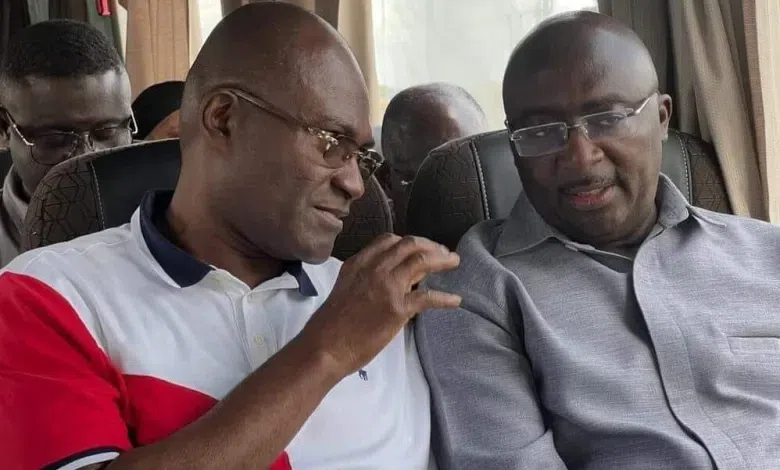The aftermath of the 2024 Ghanaian election has ignited a firestorm within the New Patriotic Party (NPP), particularly targeting Dr. Mahamudu Bawumia, the former Vice President and a prominent contender for the party’s 2028 flagbearer position. Supporters of Kennedy Agyapong, Bawumia’s chief rival, have sharply criticized Bawumia’s apology for his campaign’s conduct during the previous election, arguing that it is insufficient and even detrimental to his current aspirations. They contend that Bawumia’s admission of “dirty politics” not only casts a shadow over his campaign but also undermines his credibility as a unifying figure within the party.
Agyapong’s camp asserts that Bawumia’s apology is a tacit disavowal of his own campaign team and the individuals who tirelessly championed his cause. By acknowledging the use of unsavory tactics, they argue, Bawumia implicitly disowns prominent figures like Abronye DC, Osei Kyei-Mensah-Bonsu, Chairman Wontumi, Kwaku Ampratwum-Sarpong, and Ayew Afriye, all of whom played significant roles in his 2024 campaign. This perceived betrayal of his loyalists further weakens his standing within the party and raises questions about his leadership style.
The call for Bawumia’s withdrawal from the 2028 flagbearer race stems from the belief that his continued presence, after admitting to campaign misconduct, undermines the very unity he now espouses. Agyapong’s supporters argue that mere words of apology are insufficient to address the damage caused by the “dirty politics” employed during the previous election. They demand a more substantial demonstration of remorse and a genuine commitment to fostering reconciliation within the party. They posit that stepping aside would be the ultimate act of contrition, signaling a genuine desire to prioritize the party’s well-being over personal ambition.
The demand for Bawumia’s withdrawal highlights the deep fissures within the NPP and the lingering resentment over the 2024 election outcome. Agyapong’s camp views Bawumia’s continued pursuit of the flagbearer position as a sign of hypocrisy, suggesting that his calls for unity are merely superficial attempts to rehabilitate his image. They believe that his presence in the race will only exacerbate existing tensions and hinder the party’s ability to heal and move forward.
The intensifying rivalry between Agyapong and Bawumia underscores the high stakes of the NPP’s 2028 flagbearer contest. The party is grappling with internal divisions and faces the daunting task of regaining public trust after the 2024 electoral setback. The outcome of this internal struggle will significantly impact the NPP’s prospects in the 2028 general elections and its ability to present a united front against its political opponents.
The controversy surrounding Bawumia’s apology underscores the importance of ethical campaigning and the need for political leaders to take responsibility for their actions. It also highlights the challenges of reconciling competing ambitions within political parties and the delicate balance between personal aspirations and the collective good of the party. The NPP’s journey towards the 2028 elections will undoubtedly be shaped by how it navigates these internal conflicts and whether it can successfully forge a path towards unity and renewal.


